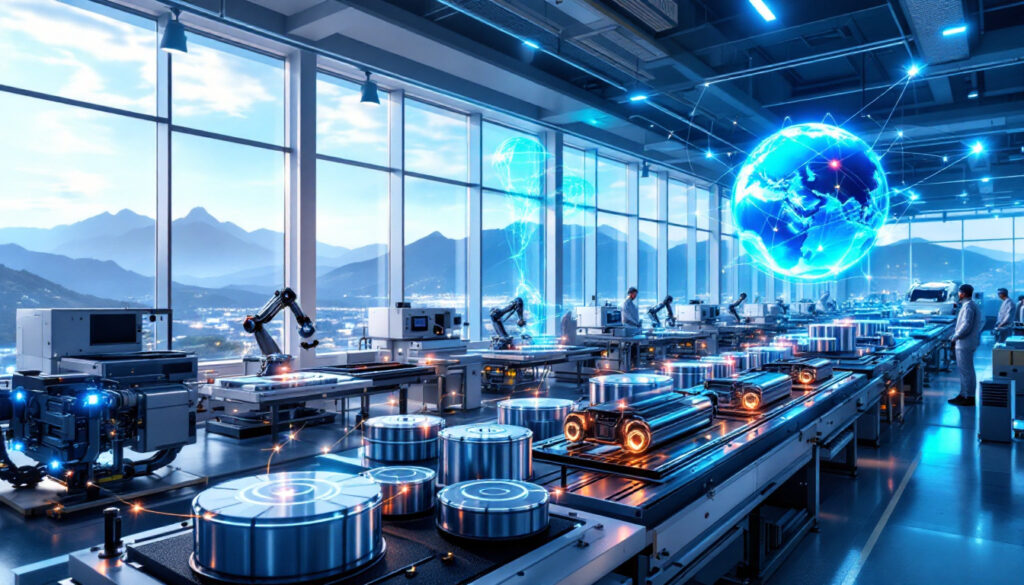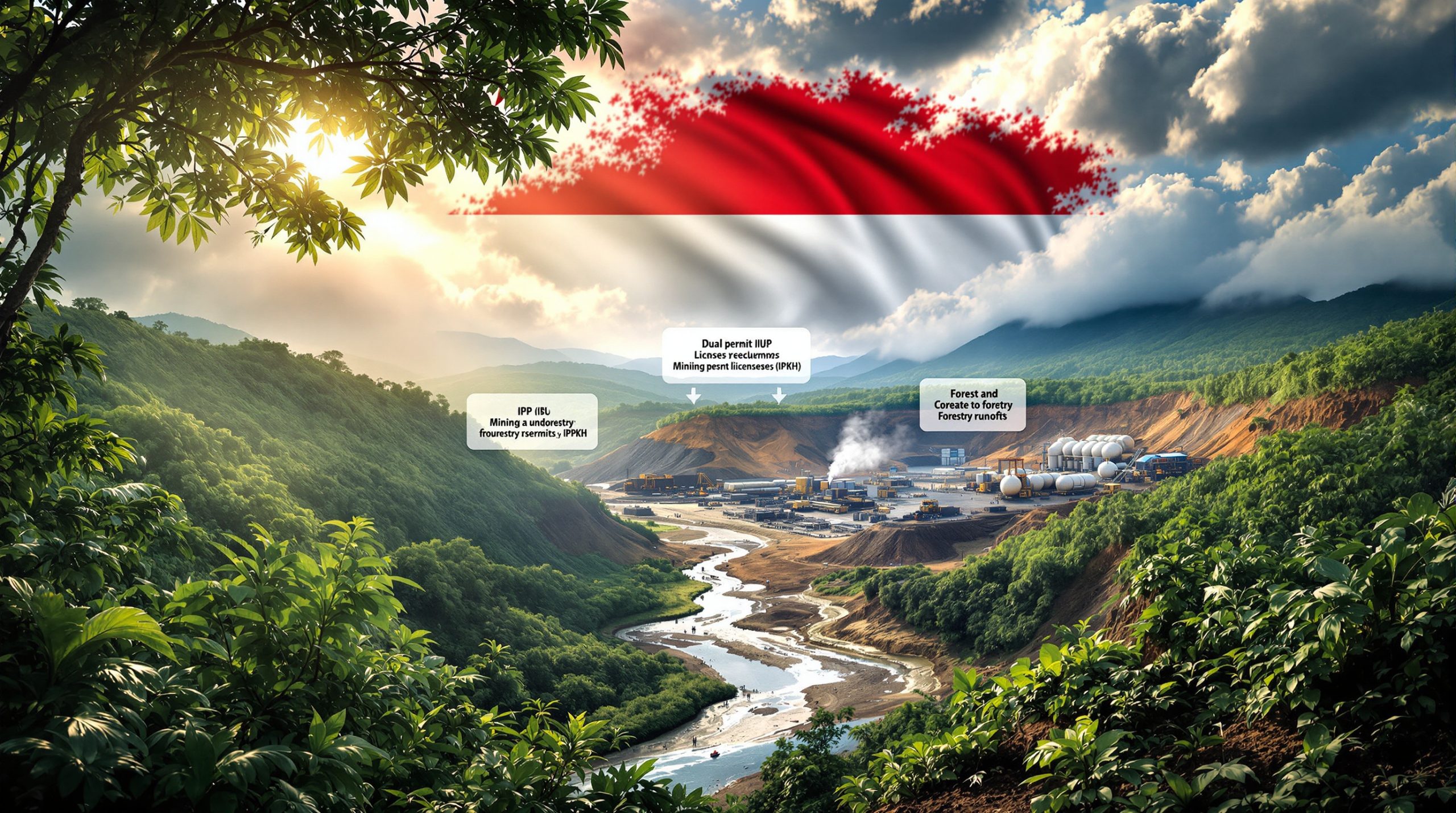Thailand Approves Sunwoda's $1 Billion Battery Investment: Strategic Implications for ASEAN EV Market
In a landmark development for Southeast Asia's electric vehicle (EV) industry, Thailand has approved Chinese battery manufacturer Sunwoda's $1 billion investment plan. This strategic move positions Thailand as a central hub in the ASEAN region's emerging EV ecosystem while strengthening the local supply chain for battery production.
What is Sunwoda's Investment Plan in Thailand?
Investment Scale and Focus
Sunwoda's investment exceeds $1 billion, focusing primarily on establishing advanced battery cell manufacturing facilities in Thailand. The investment encompasses production infrastructure for both electric vehicle batteries and cell-level energy storage systems (ESS), representing one of the largest battery metals boom investments in Southeast Asia to date.
The first manufacturing facility is already under construction in Chonburi Province, located in Thailand's Eastern Economic Corridor (EEC). This strategic location provides proximity to major seaports and existing automotive manufacturing clusters, creating logistical advantages for both regional distribution and integration with Thailand's established automotive sector.
Beyond manufacturing, Sunwoda plans to establish dedicated research and product development facilities in Thailand. These centers will focus on battery technology innovation specifically tailored to the ASEAN market's unique requirements, including adaptations for tropical climate performance and regional driving conditions.
Strategic Manufacturing Goals
The core focus of Sunwoda's facilities will be the production of lithium-ion battery cells designed specifically for EV manufacturers operating in Thailand and across the ASEAN region. Industry analysts note that localizing this critical component manufacturing reduces supply chain vulnerabilities and transportation costs for regional automakers.
The investment is expected to create over 1,000 jobs for Thai engineers, technicians, and skilled workers. According to industry sources, approximately 70% of these positions will require specialized technical training in battery chemistry, electrical engineering, and advanced manufacturing processes.
Significantly, this facility represents the first dedicated EV battery cell manufacturing operation in the ASEAN region. Previously, regional automakers relied heavily on imported cells from China, Japan, and South Korea, creating potential supply bottlenecks and increasing costs.
Why is Thailand Attracting Battery Manufacturers?
Government Support and Incentives
The approval of Sunwoda's investment came directly from Thailand's Commission on National Competitiveness Enhancement, signaling high-level government support for the project. This commission, established specifically to evaluate strategic foreign investments, has identified battery manufacturing as a priority sector for Thailand's industrial development.
The Thailand Board of Investment (BOI) has implemented a comprehensive incentive package designed specifically to attract EV ecosystem investments. These incentives include corporate tax holidays of up to 8 years, import duty exemptions on machinery, and land ownership privileges for foreign investors in strategic sectors.
"Today marks a milestone in the development of Thailand's EV supply chain, as having EV battery cells produced locally will significantly reinforce our status as a manufacturing hub for EVs and hybrids, and increase the country's competitiveness," stated Narit Therdsteerasukdi, secretary general of Thailand Board of Investment.
A lesser-known aspect of Thailand's battery strategy involves a specialized workforce development program established in partnership with Thai technical universities. This program is designed to create a pipeline of qualified engineers with specific training in battery technology, addressing potential skills gaps before they emerge.
Growing EV Manufacturing Hub
Thailand has successfully attracted multiple Chinese automakers in recent years, establishing itself as a preferred manufacturing base for the ASEAN market. BYD, Great Wall Motor, Hozon, and GAC have all established or announced production facilities in the country, creating natural demand for locally-produced battery cells.
Industry analysts note that Chongqing Changan Automobile and Chery Automobile are actively planning local production facilities in Thailand, further expanding the potential customer base for Sunwoda's battery cells. This clustering effect creates significant economies of scale and supply chain efficiencies.
Thailand's strategic location as a centralized manufacturing hub within ASEAN provides natural advantages for regional distribution. The country's well-developed logistics infrastructure, including deep-water ports and extensive highway networks, facilitates efficient export capabilities to neighboring markets like Indonesia, Vietnam, and Malaysia.
How Will This Investment Impact Thailand's Economy?
Economic Benefits
The direct creation of over 1,000 high-skilled jobs represents just the beginning of the economic impact. Industry experts estimate that each direct job in battery manufacturing typically creates 2-3 additional positions in the supporting supply chain, suggesting a total employment impact exceeding 3,000 jobs.
Knowledge transfer represents a critical long-term benefit, with Sunwoda expected to implement comprehensive training programs for Thai engineers and technicians. This technology transfer accelerates Thailand's capabilities in a sector projected to grow exponentially over the next decade.
Manufacturing competitiveness in Thailand's industrial sector will receive a significant boost from this investment. The localization of battery cell production reduces supply chain complexity for EV manufacturers and potentially lowers production costs by eliminating import-related expenses and delays.
Local supply chain capabilities will expand as secondary manufacturers establish operations to support Sunwoda's production. These are likely to include separator material producers, electrolyte manufacturers, and specialized testing equipment suppliers, creating a comprehensive battery ecosystem.
Energy Transition Advantages
Beyond the EV sector, Sunwoda's energy storage system (ESS) production capabilities will support wider adoption of renewable energy in Thailand. These systems enable more effective utilization of intermittent energy sources like solar power by providing storage capacity during peak generation periods.
Solar energy utilization in Thailand is expected to benefit significantly from locally-produced battery systems. The tropical climate provides abundant solar resources, but effective storage solutions have been a limiting factor for widespread adoption. Local production reduces ESS costs and enables customized solutions for Thailand's specific climate conditions.
Thailand currently imports nearly all battery components used in both consumer electronics and emerging industrial applications. Localizing production reduces this dependency and improves energy security by creating domestic manufacturing capacity for critical energy transition technologies.
Who is Sunwoda and What's Their Market Position?
Company Background
Sunwoda Electric Vehicle Battery Co. is headquartered in Shenzhen, China, operating as a specialized division of the larger Sunwoda Electronic Co., which was established in 1997. The company began as a consumer electronics battery manufacturer before strategically expanding into the electric vehicle sector.
The company has established global operations beyond its Chinese base, with facilities in Europe and now Southeast Asia. This expansion strategy aims to position Sunwoda as a truly global battery manufacturer, capable of serving automotive clients in all major markets.
A distinctive aspect of Sunwoda's technology approach involves specialized battery chemistries optimized for tropical climate performance. This adaptability makes their products particularly suitable for Southeast Asian conditions, where high temperatures can impact conventional battery designs.
Regional Expansion Strategy
Sunwoda's Thai facility represents their first dedicated EV battery cell factory in the ASEAN region, signaling a strategic pivot toward emerging markets. Industry analysts note that ASEAN represents one of the fastest-growing automotive markets globally, with EV adoption accelerating rapidly from a low base.
The company is specifically targeting the growing EV manufacturing ecosystem in Thailand, which includes both established Japanese automakers and newer Chinese entrants. This diverse client base provides natural risk diversification for Sunwoda's production capacity.
Regional supply chain advantages play a significant role in Sunwoda's investment decision. Thailand's established automotive component manufacturing base provides supporting infrastructure for battery production, including precision metal parts, electronic systems, and quality control services.
What Does This Mean for ASEAN's EV Supply Chain?
Regional Manufacturing Implications
This investment significantly strengthens ASEAN's position within the global commodities market by establishing local production of a critical component. Previously, the region functioned primarily as an assembly location for imported components, capturing limited value-add in the manufacturing process.
Dependency on battery imports from China will decrease substantially as Sunwoda's Thai facility ramps up production. Industry analysts estimate that transportation costs add approximately 5-8% to imported battery costs, suggesting immediate competitiveness for locally-produced cells.
Export capabilities to neighboring countries represent a significant opportunity for Sunwoda's Thai operation. The facility's production capacity is expected to exceed Thailand's immediate domestic requirements, enabling exports to Vietnam, Indonesia, and other ASEAN markets developing their own EV industries.
Regional EV adoption is likely to accelerate through localized production, as shorter supply chains and reduced import dependencies typically lead to cost reductions. A lesser-known factor involves warranty and after-sales support improvements enabled by proximity between battery manufacturers and vehicle assembly operations.
Competitive Landscape Analysis
The growing presence of Chinese manufacturers in Thailand creates a complex competitive dynamic. While these companies bring advanced technology and capital investment, they also potentially limit opportunities for non-Chinese manufacturers to establish competing operations.
Non-Chinese battery manufacturers face increasing challenges in penetrating the ASEAN market as Chinese firms establish early-mover advantages. Companies like LG Energy Solution and Samsung SDI may need to accelerate their own regional investment plans to maintain market access.
Thailand is rapidly emerging as a specialized battery manufacturing hub within Southeast Asia, complementing Indonesia's focus on upstream mineral processing and Vietnam's electronics manufacturing capabilities. This specialization pattern creates a distributed but interconnected regional EV supply chain.
Expert Perspectives on the Investment
Industry analysts emphasize the strategic importance of this investment for Thailand's industrial development trajectory. Dr. Somchai Pattanapong, an energy policy researcher at Chulalongkorn University, notes: "This investment positions Thailand at a critical juncture in the regional EV supply chain, potentially leapfrogging traditional development patterns by focusing on high-value components."
Engineering specialists highlight the technological complexity of battery cell manufacturing. "The establishment of cell-level production represents a significant technological leap for Thailand's manufacturing capabilities," explains Dr. Hathai Uthaipat, an electrical engineering professor specializing in energy storage systems.
Economic forecasters project that this investment could catalyze an additional $2-3 billion in related investments throughout the supply chain over the next five years. "Battery cell manufacturing creates natural clustering effects," notes Kasikorn Research Center's industrial analyst team in a recent report.
FAQ: Thailand's Battery Manufacturing Expansion
What types of batteries will Sunwoda produce in Thailand?
Sunwoda will manufacture lithium-ion battery cells primarily focused on nickel-manganese-cobalt (NMC) chemistry for passenger vehicles and lithium iron phosphate (LFP) formulations for commercial vehicles and energy storage applications. These technologies balance performance, cost, and safety considerations for different applications.
When will Sunwoda's first Thai factory begin operations?
While construction is already underway in Chonburi Province, production is scheduled to begin in phases starting in Q3 2026. Initial capacity will focus on battery modules using imported cells, with full cell-level production expected to commence in Q1 2027.
How does this investment compare to other battery investments in the region?
At over $1 billion, Sunwoda's investment represents one of the largest battery manufacturing commitments in the ASEAN region to date. By comparison, Vietnam has attracted battery investments of approximately $400 million, while Indonesia has secured larger investments focused primarily on upstream mineral processing rather than cell manufacturing.
What are the environmental implications of this battery manufacturing expansion?
The environmental impact is multifaceted, with positive contributions to Thailand's clean energy transition through local production of energy storage solutions. However, battery manufacturing involves energy-intensive processes and potentially hazardous materials, necessitating strict environmental controls. Sunwoda has committed to implementing advanced water recycling systems and energy-efficient manufacturing processes to minimize environmental impacts.
The expansion of battery manufacturing also raises questions about the sourcing of rare earth minerals needed for production. Thailand's approach to creating sustainable supply chains will be critical to achieving genuine environmental benefits from the EV transition.
Want to Identify the Next Major Mineral Discovery Before the Market?
Discover why major ASX mineral discoveries can lead to exceptional returns by exploring Discovery Alert's dedicated discoveries page, where our proprietary Discovery IQ model transforms complex mineral data into actionable investment insights for traders and long-term investors alike.




